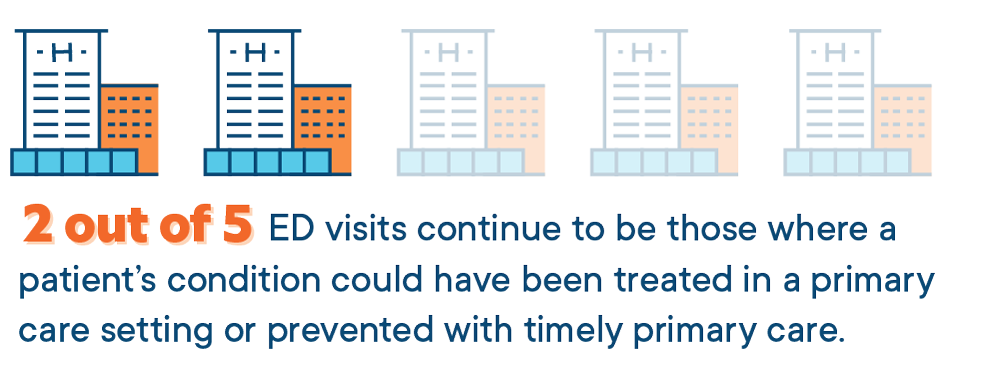Despite being one of the highest-value categories of care, primary care represents a declining share of health care spending in Massachusetts. Primary care in the Commonwealth is facing many challenges, for both providers and patients. Many patients face significant access barriers to receiving care, and residents of lower income communities are most likely to have no primary care use at all.
Although Massachusetts has the highest total physicians per capita, Massachusetts has the fifth lowest share of all physicians who work in primary care and few new physicians are going into primary care.

For providers, administrative burden makes the work of providing primary care increasingly unsustainable, and many experience burnout. Low payment rates for primary care, relative to specialty and hospital-based care, disincentivize new physicians from entering the field and disincentivize the health industry from prioritizing primary care. As a result, few physicians are going into primary care, and many report reducing their hours or exiting patient care, leaving larger patient panels for remaining providers.
Many patients face significant access barriers to receiving care, and residents of lower income communities are most likely to have no primary care use at all. The HPC found that in 2024, roughly 40% of emergency department visits continued to be those where a patient’s condition could have been treated in a primary care setting or prevented with timely primary care, and in 2022, commercially-insured children living in low-income areas were three times more likely to have no primary care visits than children in the highest-income areas.

Nurse practitioners and physician assistants are increasingly involved in primary care, but Massachusetts has been slow to integrate them into practice, and financial and job-quality considerations may lead them to opt for hospital-based or specialty careers. Community health centers – an essential source of primary care for patients who are medically underserved – are experiencing an exacerbated version of the trends and obstacles facing primary care across the Commonwealth.
The HPC has examined many of the challenges facing the primary care workforce in A Dire Diagnosis: The Declining Health of Primary Care in Massachusetts and the Urgent Need for Action.
Primary Care Access, Delivery, and Payment Task Force
In January 2025, Governor Maura Healey signed Chapter 343 of the Acts of 2024. Section 80 of the law establishes a new task force on primary care in the Commonwealth, to be co-chaired by the Executive Office of Health and Human Services and the Massachusetts Health Policy Commission.
The task force is charged with developing a series of recommendations to stabilize and strengthen the primary care system, including to:
- define primary care services,
- develop a standardized set of data reporting requirements for payers, providers, and provider organizations to track payments for primary care services,
- establish a primary care spending target,
- propose payment models to increase primary care reimbursements,
- assess the impact of health plan design on health equity and patient access to primary care services,
- monitor and track the needs of and service delivery to Massachusetts residents, and
- create workforce development plans to increase the supply and distribution of, and improve the working conditions of the primary care workforce.
Learn more about the Primary Care Access, Delivery, and Payment Task Force.
 Resources
Resources